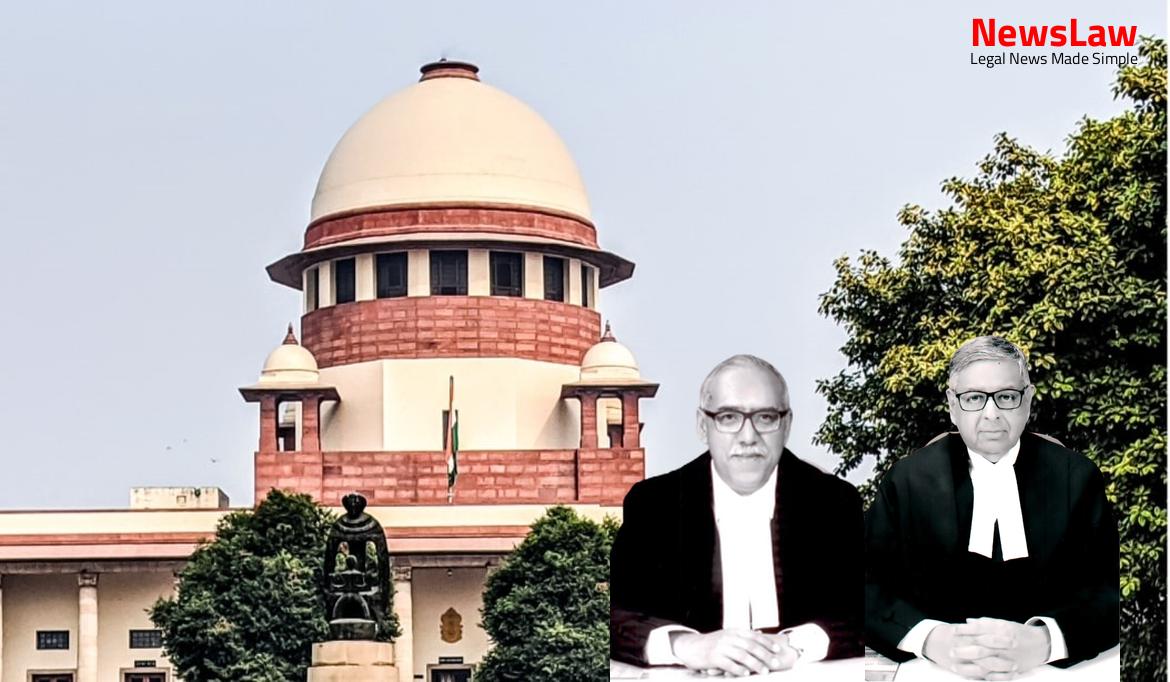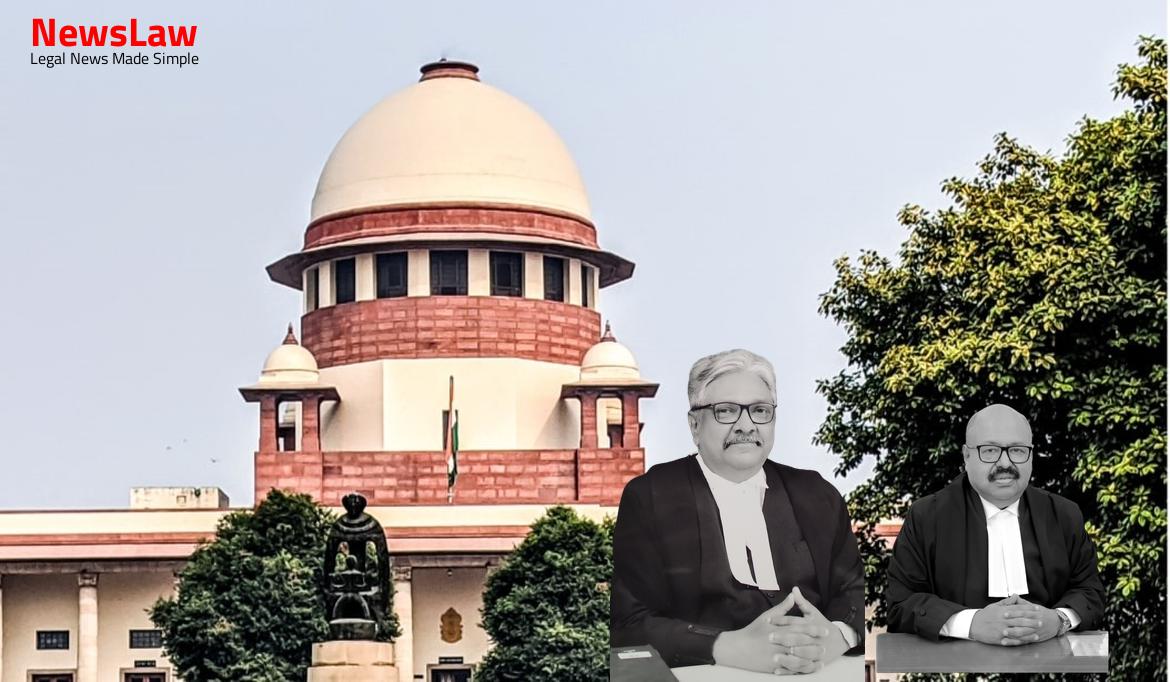In a significant legal development, the Supreme Court of India has delivered a crucial judgment regarding the discharge of accused individuals under the TADA Act. This landmark case sheds light on the mandatory nature of obtaining prior approval under Section 20-A(1) of the TADA Act. Stay informed about this important ruling that sets a precedent for future legal proceedings.
Facts
- Accused persons could not produce any license for the arms seized
- Personal search revealed the following recoveries from the accused:
- – Ebha Arjun Jadeja: 9mm Beretta pistol, 32 bore revolver, live and fired cartridges
- – Bachchu Bhikha Mer: 315 bore country-made tamancha
- – Keshu Chana Mer: 12 bore country-made tamancha
- Accused were asked to disclose their identities and were found in possession of illegal arms
- Police apprehended the accused during a night round operation based on prior information
Also Read: Enforcement of Foreign Award: Case of Oscar Investments Limited and RHC Holding Private Limited
Analysis
- Section 20-A of TADA Act clearly mandates that no information about the commission of an offense under the Act shall be recorded by the police without the prior approval of the District Superintendent of Police.
- Non-compliance with Section 20-A(1) of TADA Act vitiates the entire proceedings and cannot be cured under the CrPC.
- The provision of Section 20-A(1) is mandatory and must be strictly followed due to the serious consequences and stringent nature of TADA Act.
- The Legislature introduced Section 20-A(1) in TADA Act to ensure a senior official reviews and grants sanction for offenses under TADA to prevent persecution.
- The requirement of prior approval by the District Superintendent of Police is not directory in nature but mandatory.
- While information can be communicated to the District Superintendent of Police, actual recording of information about TADA offenses without prior approval is prohibited.
- The intention behind Section 20-A(1) is clear; no offense under TADA Act should be recorded without the sanction of the competent authority.
- The scheme of TADA Act is different from ordinary criminal statutes and must be strictly construed with all safeguards followed.
- The evidence for convicting under Arms Act and TADA Act is the same, yet separate sanctions are required for successful prosecution under both Acts.
- Commencement of procedures under TADA Act without prior approval of District Superintendent of Police renders the proceedings invalid.
- Section 20-A of TADA Act was considered in a case before the Court.
- In the case of Rangku Dutta @ Ranjan Kumar Dutta v. State of Assam, the Court held that the provision in question, which was framed in negative terms, is mandatory in nature.
- The judgment emphasized the mandatory nature of the provision based on its wording.
- The Court compared this case with a similar case, Ashrafkhan & Anr. v. State of Gujarat, to establish the same principle.
- Section 154 of CrPC mandates that every information regarding a cognizable offence must be reduced to writing by the officer in charge of a police station if given orally.
- The information must be read over to the informant and signed by the person giving it.
- The substance of the information must be entered in a book kept for such offences in a form prescribed by the State Government.
- The term ‘FIR’ is not explicitly used in Section 154 of CrPC but is popularly associated with the recorded information.
- The officer-in-charge must record oral information about a cognizable offence as per the provisions of this section.
- Non-compliance of Section 20-A(1) of TADA Act is fatal in the present case
- The appellants are to be discharged in regards to the offence under TADA Act
- In cases where a murder is the main offence and a prohibited weapon is recovered in a notified area, the main offence takes precedence over the TADA Act secondary offence
Also Read: Case of Eligibility for Disability Pension: Air Force Officer’s Retirement
Decision
- The police official can record the information and arrest the person for committing an offence under Indian Penal Code, 1860.
- Before proceeding under TADA Act, sanction under Section 20-A(1) of TADA Act is necessary.
- The appeal is allowed and the appellants are discharged from the offences under TADA Act.
- The appellants may be proceeded against under other provisions of law, if required.
- Pending application(s) stand disposed of.
- It is clarified that they can be proceeded against under the provisions of the Arms Act.
Also Read: Judgment by Supreme Court On Man Singh vs. State of India
Case Title: EBHA ARJUN JADEJA Vs. THE STATE OF GUJARAT
Case Number: Crl.A. No.-001692-001692 / 2009



